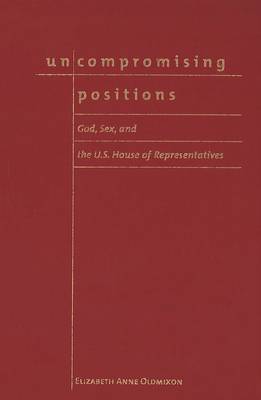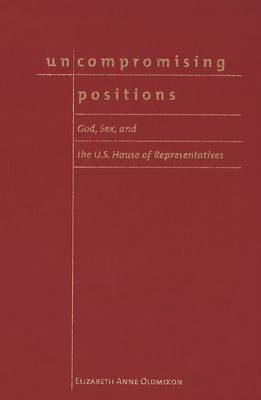
- Retrait gratuit dans votre magasin Club
- 7.000.000 titres dans notre catalogue
- Payer en toute sécurité
- Toujours un magasin près de chez vous
- Retrait gratuit dans votre magasin Club
- 7.000.0000 titres dans notre catalogue
- Payer en toute sécurité
- Toujours un magasin près de chez vous
Description
Cultural factions are an intrinsic part of the fabric of American politics. But does this mean that there is no room for compromise when groups hold radically different viewpoints on major issues? Not necessarily. For example, in a June 2003 Time/CNN poll, 49% of respondents identified themselves as pro-choice and 46% identified as pro-life. But in the same poll, 81% indicated that abortion should be "always legal" or "sometimes legal," suggesting that "pro-life" and "pro-choice" are not discrete positions but allow room for compromise.
How do legislators legislate policy conflicts that are defined in explicitly cultural terms such as abortion, gay marriage, and school prayer? American political institutions are frequently challenged by the significant conflict between those who embrace religious traditionalism and those who embrace progressive cultural norms. Uncompromising Positions: God, Sex, and the U.S. House of Representatives investigates the politics of that conflict as it is manifested in the proceedings of the U.S. House of Representatives. Oldmixon traces the development of these two distinct cultures in contemporary American politics and discusses the decision-making and leadership tactics used by legislators to respond to this division of values. She argues that cultural conflict produces an absolutist politics that draws on religious values not amenable to compromise politics. One possible strategy to address the problem is to build bipartisan coalitions. Yet, interviews with House staffers and House members, as well as roll calls, all demonstrate that ideologically driven politicians sacrifice compromise and stability to achieve short-term political gain. Noting polls that show Americans tend to support compromise positions, Oldmixon calls on House members to put aside short-term political gain, take their direction from the example of the American public, and focus on finding viable solutions to public policy--not zealous ideology.
Spécifications
Parties prenantes
- Auteur(s) :
- Editeur:
Contenu
- Nombre de pages :
- 262
- Langue:
- Anglais
- Collection :
Caractéristiques
- EAN:
- 9781589010727
- Date de parution :
- 02-12-05
- Format:
- Livre relié
- Format numérique:
- Genaaid
- Dimensions :
- 154 mm x 223 mm
- Poids :
- 703 g

Les avis
Nous publions uniquement les avis qui respectent les conditions requises. Consultez nos conditions pour les avis.






